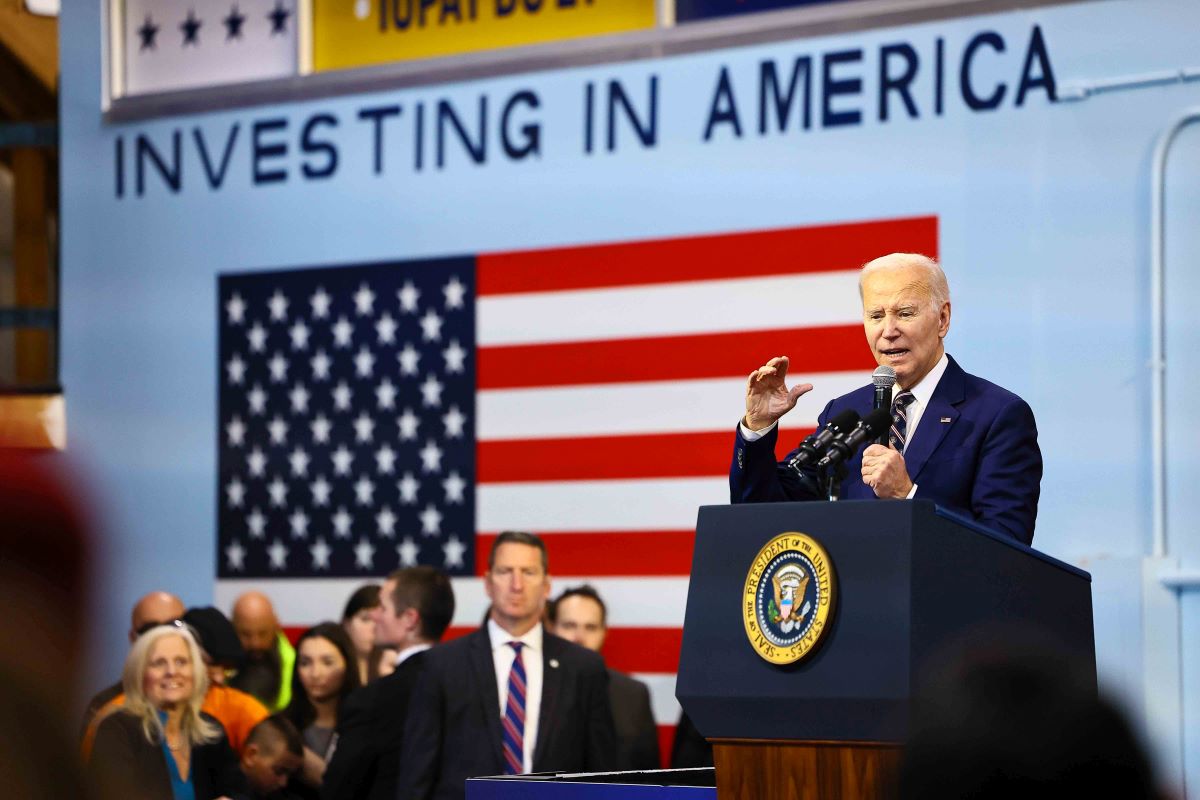Housing programs are set to take center stage in the congressional fight over President Joe Biden’s fiscal year 2024 budget. Republicans have made it clear that they want to slash federal spending on aid programs, while Democrats are trying to maintain the momentum they’ve built up over the first two years of Biden’s presidency.
Since taking office in 2020, Biden has poured billions into programs that expand pathways to homeownership for ethnic and first-generation households. Biden has also asked oversight agencies like the Consumer Financial Protection Bureau and the Housing Finance Authority to step up their enforcement of the nation’s fair housing laws. All of these efforts could be swiftly undone now that Republicans control the House of Representatives and the nation’s purse strings.
“I value everyone having an even shot — not just labor, but small-business owners, farmers, and so many other people who hold the country together who have been basically invisible for a long time,” Biden said on March 9 about his budget at the Finishing Trades Institute in Pennsylvania.
Budget to Increase Spending on Affordable Housing and Homelessness
Overall, Biden’s 2024 budget aims to spend about $6.8 trillion over the next 12 months, with major spending increases for affordable housing construction, college education programs like the Pell Grant, and programs that lower the cost of healthcare. To fund these initiatives, Biden’s budget proposes boosting the corporate tax rate up to 28% from its current low of 10%. It would also end the tax breaks many offshore companies enjoy and raise the U.S.’s foreign earnings tax rate from 10.5% to 21%.
An analysis by the Office of Management and Budget found that Biden’s plan could shave $3 trillion off of the national debt despite Biden’s budget being about 17% larger than it was in the fiscal year 2023.
One of the ways it could reduce the deficit is by ending the “reckless and unpaid for” tax cuts that former president Donald Trump passed that overwhelmingly benefitted large corporations and the wealthy.
Biden Receives Support from Advocates
Department of Housing and Urban Development Secretary Marcia Fudge described the president’s budget as one that “supports this historic Administration’s goal of building a better America for all” through increased spending on addressing homelessness and increasing the supply of affordable housing.
“The budget invests in Americans at every station in life – from those seeking to purchase a home to those who receive HUD rental assistance – and will ensure families across the country can live in communities that are safe, affordable, and resilient,” Fudge said in a statement.
Advocates like Diane Yentel, CEO of the National Low Income Housing Coalition, applauded Biden for providing almost $35.7 billion for pandemic-era support programs like emergency rental assistance and expanded use of Emergency Housing Vouchers to help people living on the streets find supportive housing.
“The legislation has helped develop much-needed housing infrastructure and moved our nation one step closer to ensuring that affordable, stable housing is universally available to all,” Yentel said in a statement.
Republicans Say the New Spending Is Wasteful
However, congressional Republicans have said they want to cut spending on these programs because they see them as wasteful. Speaker of the House Kevin McCarthy, who represents Orange County, California, and three other top Republicans in the House of Representatives responded to Biden’s budget proposal by saying it is a “reckless proposal” that will add to the national debt.
“We must cut wasteful government spending,” the four Republicans said in a joint statement. “Our debt is one of the greatest threats to America, and the time to address this crisis is now. Yet, President Biden is proposing out-of-control spending and delaying debt negotiations, following his pattern of shrugging and ignoring when faced with a crisis.”
Senator Eric Schmitt, R-MO, told Fox News that Biden’s budget will face similar pushback in the Upper Chamber if it reaches there.
“Any budget request that focuses on tax hikes and more spending rather than cutting spending and easing the economic burden on this country is deeply unserious – this budget doesn’t have an ounce of serious proposals in it,” Schmitt told the news station. “The federal government doesn’t have a revenue problem; it has a spending problem.”
How You Can Help
The pandemic proved that we need to rethink housing in the US. It also showed that aid programs work when providing agencies and service organizations with sufficient funds and clear guidance on spending aid dollars.
Contact your officials and representatives. Tell them you support keeping many of the pandemic-related aid programs in place for future use. They have proven effective at keeping people housed, which is the first step to ending homelessness.













